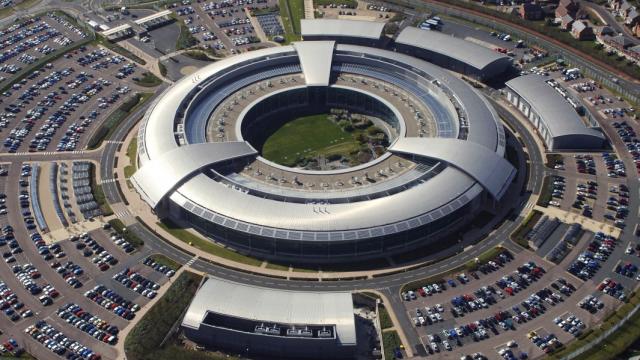
In a landmark judgement handed down last month, the European Court of Human Rights (ECHR) ruled that the U.K.’s mass surveillance program exposed by U.S. National Security Agency whistleblower Edward Snowden violated privacy and freedom of speech.
The ruling, consequential as it was, has been buried under a mountain of other news in recent weeks. It perhaps also didn't receive fair attention because mainstream news outlets seemed disappointed that the European court judges didn’t come down as hard on the intelligence agencies as many would have hoped.
The legal challenge was brought to the ECHR last November by a coalition of civil liberty organizations, human rights groups, journalists and privacy advocates, following revelations from Snowden about Britain’s intelligence and surveillance-sharing practices.
Labelled the "Big Brother" program, U.K. lawmakers in 2016 approved sweeping surveillance powers to intelligence agencies and police. One of the most contentious features of the controversial surveillance bill is that it required internet providers to log people’s browsing history for up to a year as a way of assisting law enforcement agencies with investigations.
Prime Minister Theresa May introduced the measure in 2015 when she was Home Secretary and hailed the legislation as “world-leading” and necessary during a time of rapidly changing digital communications.
At the time, the former NSA analyst turned whistleblower Edward Snowden condemned the legislation, summing up the bill in a tweet: “The U.K. has just legalized the most extreme surveillance in the history of western democracy. It goes farther than many atrocities.”
The Liberty Human Rights group, which campaigns for civil liberties and human rights in the U.K., was among the organizations that challenged the surveillance bill. In a statement, Bella Sankey, Liberty’s policy director, said:
“Under the guise of counter-terrorism, the state has achieved totalitarian-style surveillance powers, the most intrusive system of any democracy in human history. The fight does not end here. Our message to the Government: ‘See you in court.’"
The principle challenge to the law claimed that Britain’s bulk interception program violated the European Convention on Human Rights’ fundamental principles. In a victorious ruling for those opposed to the bill, the ECHR ruled that parts of the mass surveillance program violated Article 8 of the convention, which guarantees a right to privacy.
The court also ruled that the interception of journalist material violates freedom of information, and that acquiring information from internet providers was “not in accordance with the law.”
Less victorious, however, was the court’s ruling that bulk interception of communications was not wholly illegal. Furthermore, the exchange of intelligence data between foreign governments, like U.K. and U.S. intelligence agencies, was ruled legal.
Nonetheless, the decision that Britain’s mass surveillance program violates privacy and freedom of speech was a reminder of the weight still carried by Edward Snowden’s 2013 intelligence leaks, considered one of the most significant in U.S. history.
The first bombshell story, published in the Guardian, was based on top-secret documents sourced by Snowden that proved the National Security Agency was spying on U.S. citizens. In the ensuing years, a series of explosive articles began to circulate revealing the NSA’s mass collection of Americans’ phone records and its controversial PRISM program that directly accessed the servers of tech giants, including Facebook, Microsoft and Google.
The revelations caused a public uproar, and privacy advocates have been challenging the legality of such surveillance and privacy tactics ever since.
In August of this year, two U.S. senators put the NSA’s mass surveillance system back in the spotlight, when senators Ron Wyden and Rand Paul reportedly wrote to the NSA inspector general asking him to examine the agency’s deletion of metadata for hundreds of millions of phone calls.
The NSA blamed the unusual mass deletion of certain call detail record (CDRs) – the spy agency revealed it had collected 534 million CDRs in 2017 – on “technical irregularities.” The agency added that because it was unable to discriminate between illegally and legitimately gathered phone details, it was going to “delete all CDRs acquired since 2015.”
The ECHR’s watershed ruling last month on Britain's spying program was a sign to many that the coalition of civil and human rights organizations, and the pressure applied by a concerned public, were continuing to impact the ability of intelligence agencies and police to use mass surveillance powers in a way that is widely seen as violating privacy and freedom of speech.











